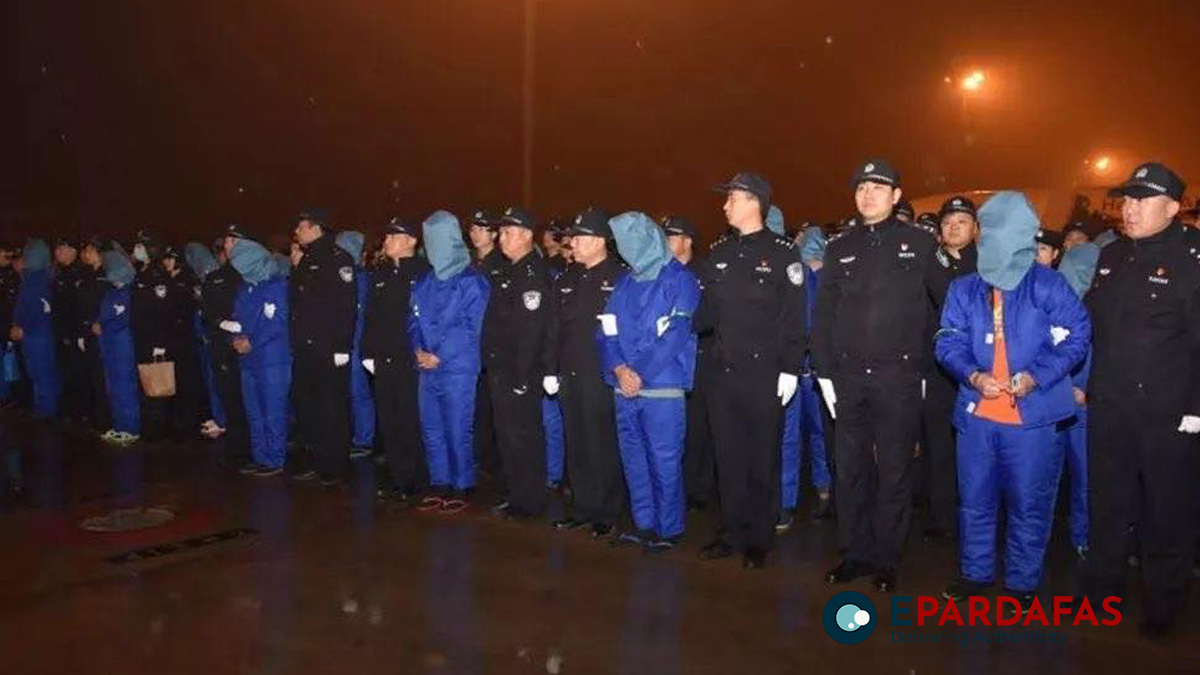
Rising Concerns Over Chinese Crime Network Spreading in Nepal
Concealed Hideouts in High-Security Zones of the Capital
Alarming reports have emerged regarding the proliferation of an organized Chinese crime network operating within Nepal, engaging in activities such as gold smuggling, call bypass, human trafficking, online fraud, and illegal foreign currency trading. This illicit network not only poses a significant economic challenge but also threatens national security.
The extent of this Chinese criminal network was recently exposed when a gang successfully conducted gold smuggling operations, evading the vigilance of state apparatus, including security agencies. The gang smuggled over a quintal of gold, utilizing discreet locations across Kathmandu, such as Baluwatar, Lazimpat, Nayabazar, and Tokha, to conceal, process, and transport the illicitly obtained gold. An extensive three-week investigation by the Revenue Investigation Department and Police confirmed the involvement of Chinese nationals residing in Nepal under the guise of tourist and business visas.
In an effort to curb these criminal activities, law enforcement has taken action, leading to the arrest of several Chinese citizens connected to gold smuggling and other illicit operations. Additionally, it has been revealed that the criminal network has extended its reach, establishing relationships with customs officials and political parties, further complicating efforts to eradicate such activities.
The Chinese crime network has demonstrated its involvement in not only gold smuggling but also a range of severe crimes. Recent incidents include the arrest of a Chinese national attempting to carry 100,000 Chinese yuan out of the country, suspected to be proceeds from criminal activities. Furthermore, cases of human trafficking, call bypass operations, online fraud, and illegal currency trading have further unveiled the expanding reach of this network.

Authorities have noted a pattern of Chinese citizens utilizing Nepal as a hub for criminal activities, capitalizing on weak regulation and enforcement mechanisms. The Immigration Department has struggled to effectively monitor and regulate the activities of foreign nationals, leading to prolonged stays by individuals on business or tourist visas. The lack of stringent oversight has allowed the Chinese criminal network to flourish within Nepal’s borders.
Police spokesperson DIG Kuber Kadayat emphasized that the increasing number of arrested foreigners, particularly Chinese citizens, underscores the urgency to heighten surveillance and control measures. He stated that efforts are being made to strengthen monitoring resources and manpower, but challenges persist.
While Nepal has taken action against the Chinese criminal network, authorities recognize the need for international cooperation to address this multifaceted challenge. The intricate web of criminal activities, ranging from gold smuggling to illegal currency trading, calls for collaborative efforts to halt the spread of this criminal network.
The issue remains of utmost concern, not only due to its economic impact but also its potential threat to national security. As authorities intensify efforts to dismantle the Chinese crime network, vigilance and cooperation between law enforcement agencies, both domestically and internationally, will be essential to effectively combat this complex criminal operation.

Chinese Smugglers’ Concealed Hideouts in High-Security Zones of the Capital
Despite orchestrating a sophisticated web of criminal operations, including gold smuggling and hundi, by leasing properties in security-sensitive sectors of Kathmandu, Chinese criminal syndicates have evaded detection by local security agencies, revealing vulnerabilities within the state’s information system. The recent confiscation of a significant amount of illicit gold on July 19 prompted the Revenue Investigation Department to uncover these clandestine hubs operated by Chinese gangs across strategic locations in the city, including Baluwatar, Lajimpat, Thamel, Nayabazar, Panipokhari, Kapurdhara, Dhumbarahi, and Tokha.
One of the arrested individuals, Dawa Chhiring, known to hold a prominent position within the gang, previously managed the Vienna Hotel in Thamel and resided in Kapurdhara, where he rented an opulent bungalow. Officials from the Revenue Investigation Department, upon raiding Chhiring’s residence, noted that his standard of living resembled that of a prosperous business magnate.
Similarly, Thupten Chhiring, another member of the smuggling syndicate, was discovered to be residing in a Panipokhari apartment provided by Comfort Housing, paying a monthly rental fee of NPR 60,000. Law enforcement officers executed a search of the premises. Members of the Chinese gang, including Jiqing Lin, were found occupying a rented residence in Lazimpat, providing a sheltered base of operations for their illicit activities.
In a parallel revelation, a Chinese national had secured a rental agreement for a dwelling within Greenhill City Housing in Dhumbarahi. Investigations have unveiled that this individual was paying a substantial monthly sum of NPR 150,000 for accommodation. The premises seized by the gang facilitated the concealment, transformation, repackaging, and distribution of smuggled gold, complete with equipment for gold melting and packaging.

The operatives’ gold storage depot has also been identified in Baluwatar and Nayabazar. Retired Assistant Inspector General of Nepal Police, Bam Bahadur Bhandari, emphasized that the actions of the Chinese syndicates underscore the need for heightened vigilance and proactive engagement by the country’s intelligence agencies. “It is imperative to closely monitor foreign nationals residing in Nepal and regularly analyze intelligence gathered from all security organizations,” Bhandari stated.
The audacious maneuvering of these Chinese criminals to establish covert bases of operation in strategic and security-sensitive regions of the capital demonstrates the imperative for a more robust intelligence apparatus. The recent disclosures highlight the necessity for enhanced surveillance on foreign nationals within Nepal and underscore the importance of fostering collaborative efforts among security agencies to effectively combat transnational criminal networks.

















Comments